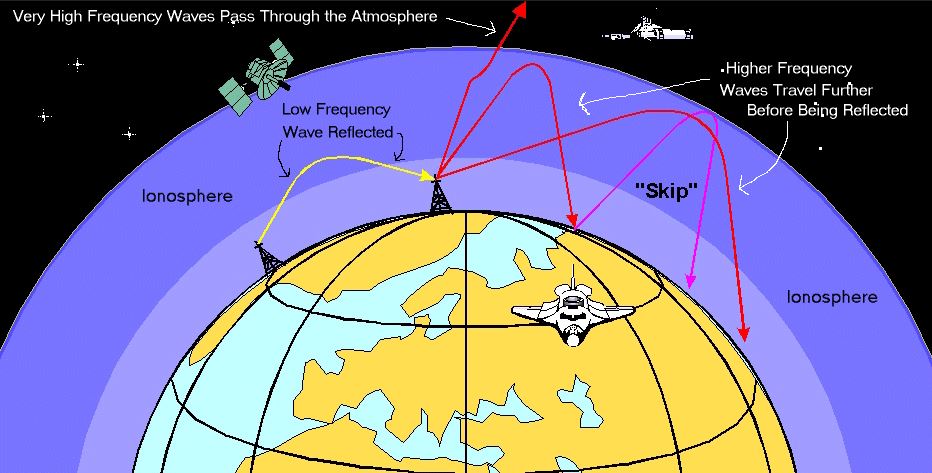We are surrounded by an ocean of waves. Light waves allow us to see the vibrant color of flowers, sound waves allow us to hear a bird’s song, and heat waves can cook up a juicy burger. Radio waves, a magical combination of electricity and magnetism, allow us to make friends across the world, or allow for a casual conversation with our neighbor. And it may be the ONLY means of communication in times of disaster.
Welcome to the hobby of Amateur Radio. It’s cutting edge technology. It’s electronic tinkering. It’s public service.
There are more than 700,000 Amateur Radio license holders of all ages and abilities who manipulate radio waves to communicate across the country, the world, and even across our solar system.
Did you know there is often one astronaut with a Ham license assigned to the radio aboard the International Space Station that can be contacted by Amateur Radio? Or that you can bounce a radio signal off the moon?
Hams often help out with public service like keeping track of participants in a foot or bicycle marathon.
Of course, Ham Radio is also a social endeavor, and contact with people from different states, countries and cultures around the world allows us to be ambassadors of goodwill.
Chet Roberts K8KIZ, succinctly described the difference between a cell phone and a hand-held (HT) radio… “One person holds a cell phone to their ear and calls a friend. A Ham holds a HT to their ear and makes a friend.”
Ham radio is a wireless technology and as such, is the only way to communicate independent of the commercial power grid and the internet in times of natural or man-made disasters.
Phone lines can go down, cell service can be overrun with calls and texts, and emails are dependent on electricity so it can be difficult for survivors as well as first responders to get in touch. Amateur Radio assisted during 9-11, Puerto Rico Hurricanes, and tornado outbreaks. All were staffed with unpaid, volunteers called Amateur Radio operators..
Hospitals and Emergency Operation Centers set up Amateur Radio stations, and many police and firefighters learn the basics of Amateur Radio to pass the introductory level, Technician exam.
Note that FEMA endorsed the work of Amateurs, proclaiming, “We owe it to these volunteers to do everything we can to support their work to help communities bounce back when disaster strikes.”
Welcome to the world of Amateur Radio.
Come explore it with us – the Medina County Amateur Radio Club.
